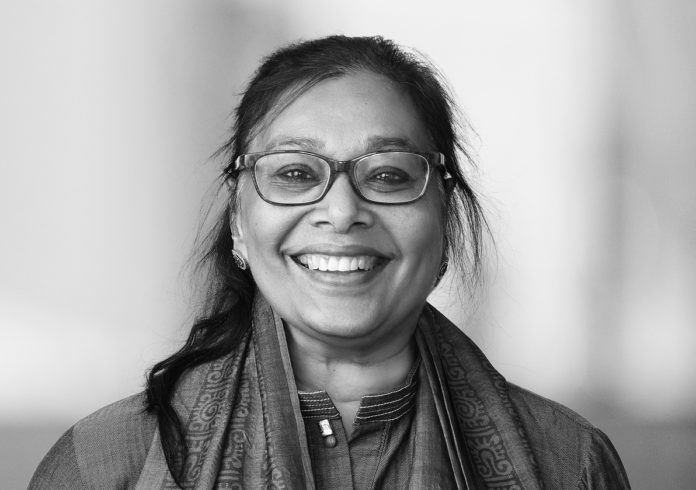Madhu Krishna, Deputy Director of the Bill and Melinda Gates Foundation and lead on the Foundation’s water, sanitation and hygiene initiative in India, highlights the urgent need to focus on the needs of women in sanitation.
Sanitation is a very basic, fundamental need. We, who are more privileged and have better economic mobility, take this for granted. We expect safe sanitation when we get up in the middle of the night or during our long work days. Unfortunately, this is not the reality for a majority of women around the world.
For many girls and women, the shocking realities of a bad school experience, uncomfortable workplaces and travel, an overburden of domestic chores, threats of sexual violence, and the tragedy of child diarrhoeal deaths are often everyday affairs. While there has been some progress toward greater gender equality, the pace of change has been uneven and vast inequalities remain.
Today, the lack of safe sanitation continues to disproportionately affect women and girls. While of course there are many men around the world who also suffer, having no access to safe facilities has direct and severe consequences on women’s health, education, dignity, safety, and psychological well-being.
The reason for this gross inequality is simple. For many years, women have been left out of planning, design and service delivery. As a result, many of our sectors including sanitation have significant gender biases or blind spots.
These gender biases and blind spots, that manifest in the way that we think, plan and design our cities and villages, create a huge burden inordinately towards women. When women are pregnant or menstruating, the needs for safe sanitation are much higher, more frequent, and more urgent. At these times, if sanitation is not available to them, it can cause psychological trauma and adverse health problems that have deep and longstanding effects.
Given that women have different physical needs and face unique socio-cultural realities in comparison to men, it is imperative that we move away from male-dominated stewardship. Instead, we must shift towards gender-intentional planning and service delivery across the board, and especially in the sanitation sector. That means, including women at the decision-making level to speak for themselves, put forward their requirements, and ultimately have their say in infrastructure design, service delivery and resource allocation.
However, in our efforts to move towards gender intentionality, we need to remember to not confuse tokenism with empowerment. Including one woman in a planning body, outnumbered and with little agency, is not a path towards empowerment.
At the Foundation, we are constantly pushing for more resource allocation and the development of entrepreneurship for women, across all spheres. Melinda Gates’ new book, The Moment of Lift: How Empowering Women Changes the World, should be compulsory reading for every individual working in the development space, in policy-making, at the government, and those in private spheres, because it talks about the omnipresence of this deep-seated inequity. As a first step, let us recognize this and then move towards holistic solutions that address the gaps.
The road ahead is long and most definitely, not easy. However, as Melinda Gates so articulately wrote, “We will not use the complexity of resolving gender inequality as an excuse for failing to think and act more intentionally about putting women and girls at the centre of what we do.”
Madhu Krishna will speak at a planned session at the forthcoming IWA Water and Development Congress & Exhibition on the topic of women in sanitation.








